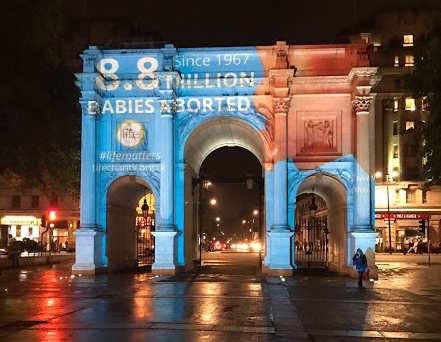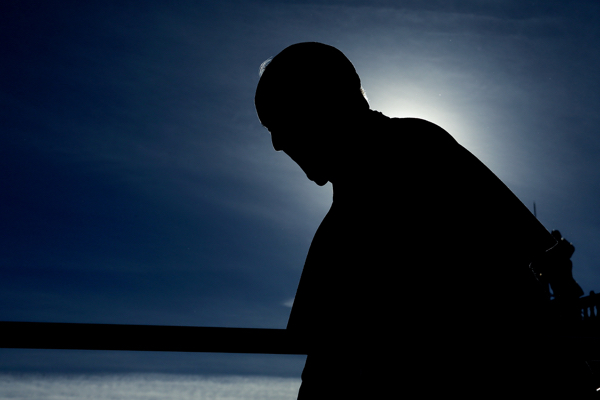Pope Francis and the Archbishop of Canterbury’s planned joint trip to South Sudan can only take place if the political situation on the ground changes, the archbishop says.
Following a private audience and lunch with the Pope today, the leader of the Anglican Communion emphasised the pair were still committed to making a historic peace mission to the war torn country.
“That will be a function of events in South Sudan, it’s not a function of our diaries, sadly,” he told The Tablet. “If we could say ‘on January 18th we will go to South Sudan and by January 20th peace will be established, that would be wonderful but the reality is it’s a function of events on the ground.”
There is concern on both sides that a visit by the Pope and the Archbishop risks being manipulated by the country’s political leaders or lack any impact if South Sudan’s powers are not ready to sit down and negotiate a peace.
“If I can put it in very crude terms it is about ‘playing that card’ changes the game,” Welby explained.
During a visit to All Saints Anglican Church in Rome in February, the Pope announced he and the archbishop were considering the “possibility” of a visit to the troubled country, which has been struck by civil war and famine.
Later on the Vatican announced the trip had been “suspended” with some arguing it was down to security fears. But today the archbishop described how the issue was down to what was happening in the country and whether political leaders were ready to pursue peace.
“It’s a calculation of what will make a difference and we are in continual touch on this,” he explained. “we are all working very hard, particularly with the churches in South Sudan, because the resolution to this appalling conflict which has caused such indescribable suffering will come through the people of South Sudan and the political leadership especially.”
Archbishop Welby was in Rome to formally commission Archbishop Bernard Ntahoturi as his Personal Representative to the Holy See and new Director of the Anglican Centre in Rome at an evensong service last night.
A former Primate of Burundi, the archbishop - and his wife Mathilde - have a long experience of reconciliation and Welby said it was “providential” he had been appointed to the job in Rome at this time. The importance of joint collaboration between Churches was made by Archbishop Paul Gallagher who gave the sermon on Thursday evening stressing that ecumenical action had a “moral imperative” to help ease global instability.
Archbishop Welby said the entire Great Lakes region is affected by similar difficulties, but that solutions could not be imposed from outside and instead must come from the ground up.
“Look back at the history of Africa over the last 150 years. This is the story of the imposition of other people’s agendas. We must not do that,” he said.
The archbishop arrived in Rome on Friday for what as his fourth formal audience with the Pope and fifth meeting in the Vatican. In a sign of the warmth between the two church leaders, Welby was invited to have lunch with Francis in his residence the Casa Santa Marta.
The lunch was also attended by Caroline Welby, the archbishop’s wife, Archbishop Ntahoturi and his wife, Bishop Tim Thornton, who works at Lambeth Palace and from the Catholic side Cardinal Kurt Koch, President of the Pontifical Council for Promoting Christian Unity, Bishop Brian Farrell, the secretary of that department and Mgr Tony Currer a council official who works on relations with Anglicans.
A Vatican interpreter assisted at both the audience - which lasted for 30 minutes and took place in the Apostolic Palace - and again during lunch.
Archbishop Welby described the encounter afterwards as “amusing, full of humour, full of profound discussion” and described his friendship with Francis as a “gift.”
He went on: “It is one of those moments where I think the grace of God is greater than I ever imagined.”
The archbishop explained that the pair discussed how to address internal divisions, with both of them facing major disagreements within their churches.
“We talked about the whole way in which - as social media has become more prevalent - every group in the world is finding it harder to deal with divergence and diversity. We talked about how one responds to that,” he said.
“We are both very aware that in both the Anglican Communion and the Catholic Church there are people who are very vociferous.”
He went on: “For me, I need to make sure I listen because the day when you stop paying attention to what people are saying you’ve set yourself up for a bad failure. But that’s my thing, I’m not making any comment about Rome.”
Both the Pope and Archbishop Welby have ministries that are characterised by putting actions ahead of words, and are motivated by an “ecumenism of action”.
But he stressed this was more profound than simply an “NGO spirituality” and the doctrinal dialogue between Anglicans and Catholics remained "critical".
He said: “I hope it is very much more than an NGO Spirituality, although I’ve got a huge respect for the NGOs. But out job - the call of Christ is to be Christ to the people in each place.”
“Ecumenism is the response to a disease in the Church. The disease of division. It’s the antibiotic. It is something that you want no longer to be necessary to take, but it will need to be taken for a long time yet. So it’s not NGO spirituality, the ecumenism of action is saying ‘we are seeking in every part and place we can to live out the fact that we are one in Christ, to the extent that we are able’.”
One particularly difficult area of doctrinal disagreement between the churches is the Catholic condemnation of Anglican orders, although recently one of the Vatican’s top legal minds said they should no longer be described as “invalid”.
When asked if this was a welcome opening, the archbishop responded: “Every step that takes us into greater visible unity is a gift of God. So of course it would be a gift of God. Every step along the ecumenical journey is a gift of God.”
Please like us and let us know your views on Facebook, and follow us on Twitter



 Loading ...
Loading ...